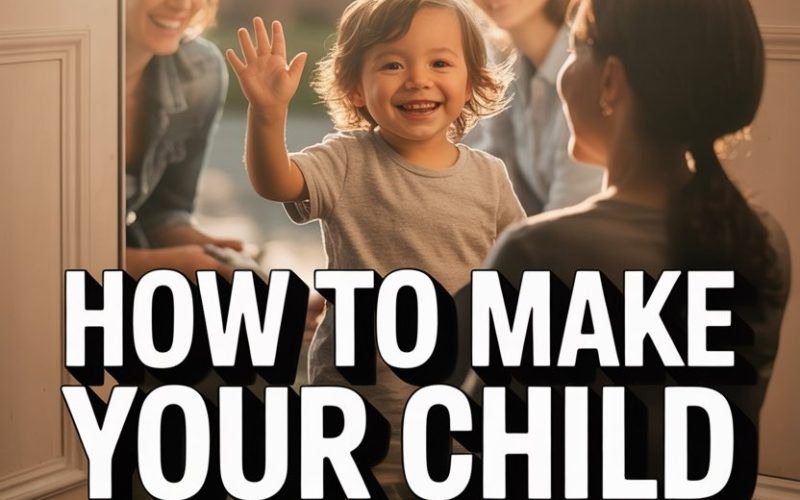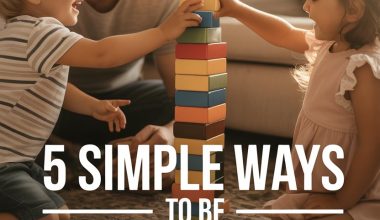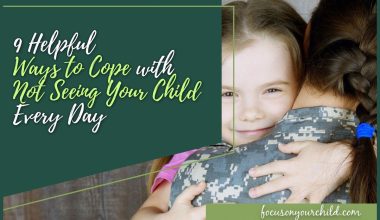Ah, daycare: that magical place where sticky fingers meet new friends, and parents everywhere hope their precious little one feels safe and loved.
If the thought of leaving your child in someone else’s care makes your heart do a little jitterbug, you’re not alone.
The transition to daycare can bring on all sorts of feelings—some warm and fuzzy, some that make you want to hide in the car park and ugly-cry into your travel mug.
But don’t worry, you’ve got this.
Creating a sense of security for your child isn’t rocket science—it’s the delicious combo of preparation, patience, and a whole lot of love (plus a bit of clever trickery, let’s be honest).
Here’s how to help your child feel secure about daycare—and maybe make drop-offs a little less teary for everyone involved.
Building Trust Starts With You
Children are emotional sponges, soaking up your energy like it’s juice at snack time. If you’re wringing your hands like you’re about to send them off to the circus, they’ll pick up on it.
Take time to get comfortable with the daycare staff and environment yourself. Chat with carers, peek around the rooms, and ask every question you’d like.
Show your child you trust the people who’ll be looking after them. When they see you smiling and relaxed (or at least pretending convincingly), it signals that daycare is a safe place.
Visit Together Before the Big Day
A dry run can work wonders. Pop in for a play session or stay for a storytime, if your centre allows.
These short, low-pressure visits mean your child gets to explore while you’re still nearby—a perfect mix of independence and reassurance.
Familiarity breeds comfort. And seeing mum or dad chat with the carers, maybe even join in a game of blocks, helps connect the dots: this is a friendly place, not a dragons’ lair.
Create a Drop-Off Ritual
The experts agree: routines help children feel secure. Establish a predictable goodbye routine, whether it’s a secret handshake, a special hug, or even a “see you later, alligator!” exchange.
Research has shown that children who have a consistent goodbye ritual adjust more quickly to daycare transitions.
When you make your exit as predictable as Peppa Pig’s muddy puddle obsession, your child knows what to expect. No surprises, just a comforting rhythm.
Pack a Piece of Home
If your child has a beloved soft toy, blanket, or even a family photo, tuck it in their bag. Familiar objects act as emotional anchors, especially during moments when everything else feels new and overwhelming.
Don’t be surprised if that mangled teddy comes home a little more “loved” (read: drooled on). It’s doing its job, and so are you.
Talk Up the Fun Bits
Instead of focusing on the separation, chat about what your child might enjoy: painting, storytime, playing outside, or making new friends. Paint daycare as a place brimming with adventure.
Even if your inner monologue is still stuck on “But what if he needs me and I’m not there?” try to wear your best game face. Children are much more likely to feel positive about daycare if you sound genuinely excited about it.
Keep Goodbyes Short and Sweet
Linger long enough and you’ll both end up in a puddle (possibly literal, if there are water tables involved). Long, drawn-out farewells can make the transition harder.
A practiced, cheerful goodbye—complete with your ritual—works wonders. Then head out with confidence (or at least excellent acting skills).
Trust your teachers; they’re professionals, and odds are, your child will be off playing before you’re even out of earshot.
Stay Consistent With Pick-Up
Reliability is a big deal for little ones. If your child knows you’ll be there when you promise, it builds trust and security.
Arrive when you say you will, and be specific: “I’ll be here after afternoon tea,” or “I’ll pick you up when you finish painting.”
Delays? Give the centre a call so staff can reassure your child. Consistency is like the secret sauce for helping kids feel safe.
Acknowledge Their Feelings
It’s tempting to sugarcoat the experience (“You’re going to love it, pinky promise!”), but children need to know it’s okay to feel nervous or sad about new things.
Reflect their feelings back to them—“I see you’re feeling a bit worried. That’s okay, lots of kids feel that way when they start daycare.” This emotion coaching approach encourages resilience and emotional intelligence.
Communicate With Carers
Open, honest chat with your child’s carers goes a long way. Share your child’s likes, dislikes, allergies, and favourite songs. The more the carers know, the easier it is for them to offer comfort and connection when you’re not around.
Ask for updates, especially in those first weeks. Most carers are happy to let you know how your little one is settling in—sometimes with a quick text, sometimes with a photo of your child elbow-deep in paint.
Practice Short Separations
If your child isn’t used to being away from you, try leaving them with a trusted friend or family member for short stretches. This helps them get used to the idea that you’ll always come back.
No need to start with a weekend away—just a quick trip to the shops or a coffee at the corner café can help build confidence (for both of you).
Set Up Playdates With Future Classmates
Nothing beats a familiar face on the first day. Many daycare centres are happy to share contact details (with permission), so you can arrange a park meet-up before starting.
Even one pal in the group can make drop-off feel less intimidating.
You never know—you might find your new best parent friend too.
Keep Your Own Emotions in Check
If your child spies you peeking through the window with tears in your eyes, guess what? It’s contagious. Save the waterworks for the drive home or your WhatsApp mum group.
Your child takes their cues from you. Show them that you’re confident in the daycare’s ability to look after them, and you’ll help them feel more confident too.
Be Patient With Setbacks
Some days your child will march in like they own the place. Other days, you’ll be prising their hands off your ankles. Regression is normal, especially after illness, breaks, or big changes at home.
Hang in there. Most children settle into daycare within a few weeks. Stick to your routines, keep communicating, and know that wobbly days are all part of the process.
Celebrate Their Wins
Notice the little victories: stayed for ten minutes without crying? New drawing stuck on the fridge? Shared the playdough?
Praise their effort, not just the outcome: “You were so brave saying goodbye this morning!” This helps reinforce the positive associations and builds their confidence for the next day.
Sleep, Food, and Routine—The Holy Trinity
A tired, hungry child isn’t at their most resilient. Do your best to keep sleep routines steady and feed them well before drop-off. If breakfast goes untouched, pack a snack the carers can offer later.
A little routine at home makes the transition to daycare structure easier. And no one copes well with a major life change on an empty stomach—least of all toddlers.
Communicate About What Happens Next
Many children worry about what comes after drop-off. Talk them through the day in simple terms: “You’ll play, have lunch, go outside, and then I’ll pick you up.”
Visual schedules or simple storybooks about daycare can make things feel more predictable.
You might also use a family calendar or picture chart at home to show when daycare days are coming up. Kids love ticking things off almost as much as adults.
Keep Home Life Predictable
When there’s a lot of change at daycare, it helps if home feels steady. Stick to bedtime, mealtime, and screen-time routines as much as you can.
Predictability at home helps offset the novelty of daycare.
Think of it as comfort food for the soul—cheesy, but true.
Don’t Forget About Yourself
While you’re busy worrying about your child’s emotional health, take a beat for your own. Parent guilt is real, but so is the fact that you’re doing your best.
Try connecting with other parents at your centre, or check out a local parent support group if you need to talk it out. The more supported you feel, the easier it is to support your child.
They’ve Got This—And So Do You
Transitions like daycare are big for little people—and for parents too. Some days will go smoothly, others will have both of you wishing for a personal assistant and a stiff drink by 9 am.
But security doesn’t come from perfection. It comes from love, consistency, and the steady signal that it’s okay to feel all the feelings along the way.
Your child will learn to trust, explore, and feel safe in their new environment (sticky fingers and all). And you’ll get better at those goodbyes—maybe even with a smile.
After all, you’re both learning.
And one day soon, you’ll be the one reassuring a nervous new parent that yes, their child will settle in—just you wait.




